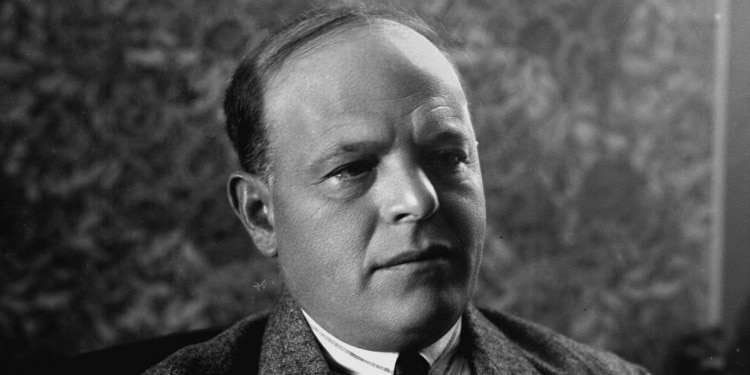Israelis You Should Know: Hayim Nahman Bialik
The Fellowship | November 23, 2016

Lived: January 9, 1873 – July 4, 1934
Known for: A pioneer of modern Hebrew poetry who gave voice to modern Jewish life, Hayim Nahman Bialik came to be known as Israel’s national poet.
Why you should know him: Bialik was born in what is now Ukraine. His father died when Bialik was only seven, leading to a miserable childhood for Hayim and his six orphaned siblings.
Raised by his orthodox grandfather in Zhitomir, a Ukrainian city whose Jews The Fellowship continues to help, young Hayim learned the traditions of Judaism, as well as literature. Studying the Talmud (Judaism’s oral tradition) at a yeshiva in Lithuania, Hayim was attracted to the creativity of the Haskalah, or Jewish Enlightenment, movement. At age 18, he left for the city of Odessa, the center of modern Jewish culture at the time.
In Odessa, he dreamed of studying to become a rabbi in Berlin. But penniless, he was forced to make a living teaching Hebrew instead. There, he also joined the Zionist movement. Returning to Zhitomir, he found his grandfather and older brother near death. After the two passed away, Hayim married, working as a teacher, a coal merchant, and a bookkeeper in his father-in-law’s lumber business.
Returning to Odessa in 1900, he taught, continued to take part in the Zionist movement, and began the most fruitful period of his poetry writing. Bialik’s poetry often acted as a statement against the growing anti-Semitic violence faced by his people, and the anguish it caused them.
Bialik visited the Holy Land in 1909, and continued his life as a Zionist, but spent the part of the 1920s in Germany, where he established and ran the Jewish Dvir publishing house. In 1924, though, he made aliyah (immigrated) to what was then British-mandate Palestine, settling in Tel Aviv.
The Jewish people of the Holy Land celebrated Bialik as a major literary figure. In 1925, he gave the opening address at the new Hebrew University in Jerusalem and sat on its board. He also was head of the Hebrew Writers Union for the rest of his life. When Bialik turned 60 in 1933, his birthday was celebrated by the entire nation and Tel Aviv’s schoolchildren came to meet him.
Hayim Nahman Bialik died in 1934 in Vienna, after undergoing an operation there. His body was brought back to Tel Aviv where a long procession ran from his home to his grave, along a street that would be named after him.
His career as a publisher, thinker, and Zionist was second to none, but it is Bialik’s poetry for which he is most fondly remembered. The annual Bialik Prize is given out for significant literary accomplishments in his memory. His own literature included love poems, personal verse, nature poems, and songs for children, which are still well known among Israel’s youngsters. But Bialik’s nationalist poems are perhaps best-known, as they called for a reawakening of the Jewish people. Perhaps his 1898 poem, “Im Yesh es Nafsnekha Lodass” best illustrates the pride and brilliance which Hayim Nahman Bialik gave not just the Jewish people and the people of Israel, but the entire world:
Should you wish to know the Source,
From which your brothers drew…
Their strength of soul…
Their comfort, courage, patience, trust,
And iron might to bear their hardships
And suffer without end or measure?
And should you wish to see the Fort
Wherein your fathers refuge sought,
And all their sacred treasures hid,
The Refuge that has still preserved
Your nation’s soul intact and pure,
And when despised, and scorned, and scoffed,
Their faith they did not shame?
And should you wish to see and know
Their Mother, faithful, loving, kind,
Who…sheltered them and shielded them,
And lulled them on her lap to sleep?
If you, my brother, know not
This mother, spring, and lap, and fort,
Then enter now the House of God,
The House of Study, old and gray,
Throughout the scorching summer days,
Throughout the gloomy winter nights,
At morning, midday, or at eve…
And there you may still behold,
A Group of Jews–some young some old,
Upon the Talmud’s folios bent.
And then your heart shall guess the truth,
That you have touched the sacred ground
Of a Great People’s House of Life,
And that your eyes do gaze upon
The treasure of a nation’s soul.
